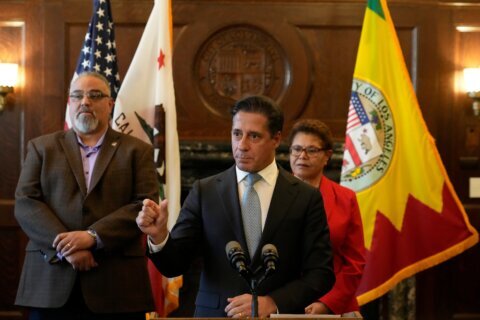WASHINGTON — A group of education policy experts said Tuesday they had reservations about Maryland’s plan to improve schools — and serious problems with Virginia’s plan.
The two states are among the 36 whose plans are still being reviewed by the U.S. Department of Education as part of the Every Student Succeeds Act, passed in 2015. The independent nonprofit Collaborative for Student Success, in conjunction with Bellwether Education Partners, has looked at and rated the plan of each state still awaiting federal approval (D.C.’s plan, along with those of 14 other states, has already been approved).
“Virginia has some work to do,” said Chad Alderman, with Bellwether Education Partners.
He gave as an example the commonwealth’s goal-setting process lacked ambition: “In some cases, the goals were already met.
” … Rather than having some ambition going forward, they didn’t have any progress envisioned for the state for the future,” he said. “There’s no sort of clearly defined indicator of overall school quality.”
Maryland’s plan scored higher, Alderman said, in part because the state has “a very strong set of standards and assessments. They’re going to look at how subgroups are performing on their goals. They’re also building in science and social studies.”
Also, the states stuck with the 2010 Common Core curriculum and the Partnership for Assessment of Readiness for College and Careers tests, the collaborative said in a statement.
As for weaknesses, he cited “a concern that some of the traditional academic measures like math and reading, and proficiency in hitting grade-level standards in growth on math and reading, were given some pretty low weights.”
In the case of both Virginia and Maryland, Alderman said, both states are using “a rank system,” rather than a standard, “which means that we’re entering a place where schools are competing against each other, as opposed to competing to meet some objective standard or bar.”
He added that neither state could estimate how many schools might be low performing. In particular, “Virginia will be identifying low-performing schools, but it hasn’t given much indication yet of what will happen in those schools, and how they will be asked to improve.”
That’s a nationwide problem, he said.
“There’s a lot of uncertainties about what will happen in the case of low performance — what intervention those schools would pursue, and what we will do as a country if low performance continues.”
Federal law
The Every Student Succeeds Act was passed on a bipartisan basis in 2015, as a replacement for the No Child Left Behind Act. It gives each state more input into forming its own plan, though each plan has to be approved by the federal authorities. States need to start identifying schools that need interventions in the summer of 2018.
“One of the lessons from No Child Left Behind was that schools do respond to the incentives that are set up for them,” Alderman said. “An accountability system works best when people know what they’re being [held] accountable for and can respond in positive ways. And there are times when that leads to unproductive results — if the measures can be gamed in unhelpful ways, or other things. But the key then is to create an accountability system where schools are working in a positive direction on things that we all care about — math and reading and progress year-to-year, graduation rates and so forth.”
It’s “too early to say” whether the law will succeed in pushing school systems into setting up students for better educational outcomes, and the details of the implementation of each state’s plan, once it’s approved, will make a huge difference.
The plans were reviewed by a group of more than 40 state and national education experts, the collaborative said. Their names and qualifications are on the Bellwether site.
You can check out Maryland’s and Virginia’s plans on their respective sites, as well as the full review for Maryland and Virginia (or any state) on Bellwether’s site.
WTOP’s Mark Lewis contributed to this report.







